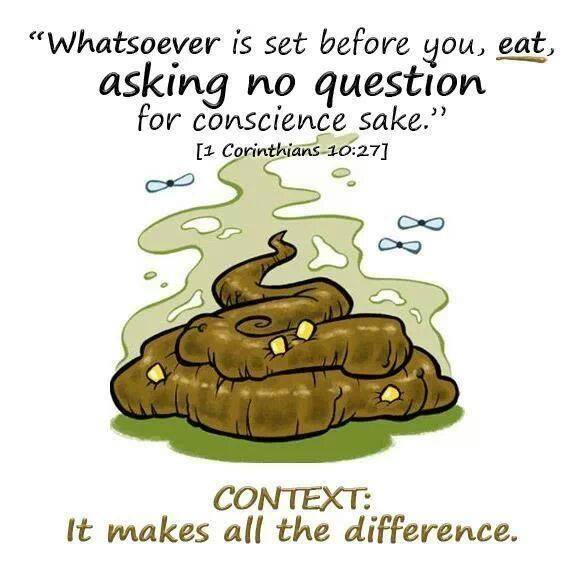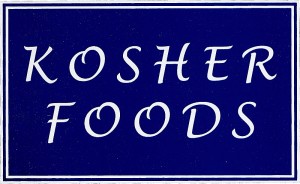If the biblical dietary laws have been abolished in the New Covenant as many in the church claim, then let’s all serve ourselves up a huge helping of our favorite dish of gourmet treif (unclean meats). How about some fricassee of roadkill skunk, rack of baboon brains, with chocolate covered maggots in creme brûlée for desert? Okay, you get the point. What did Paul really mean when he said that “nothing is unclean of itself”?

Romans 14:14, Nothing is unclean in itself. In this verse, is the Apostle Paul declaring that there is no longer a distinction between clean and unclean foods, therefore making void the biblical dietary laws? Let’s analyze the contextual and linguistic aspects of this passage to see what Paul is really saying here.
The word unclean (koinos) in this verse can also mean “common,” and in three places in the Apostolic Scriptures the two words “common” and “unclean” are used side by side; q.v. Acts 10: 14, 28 and 11:8, which says, “But I said, Not so, Master: for nothing common [koinos] or unclean [akathartos] has at any time entered into my mouth. “From this example, we see that unclean in Romans 14 can also mean “common” as we find in Acts 11. The word for unclean in Acts 11:8 is an entirely different word; therefore, akathartos is a reference to unclean meat, as proscribed by the Torah. Koinos, on the other hand, cannot mean unclean meat in Romans 14, or else Acts 11:8 would be a superfluous and unexplainably redundant in using two words that mean exactly the same thing. The word koinos is used elsewhere in the Apostolic Scriptures not to mean “unclean,” as in “unclean meat,” but “unclean” as in unwashed hands (Matt. 7:2), or “common,” as in something that is shared commonly among people (Acts 2:44; 4:32; Tit 1:4; Jude 3). Of the seven places this word is used in the Apostolic Scriptures it never means unclean meat.
In David Stern’s Jewish New Testament Commentary, on Romans 14 he states that Paul is not abrogating the biblical dietary laws. On verse 14, Stern states that Paul is referring to ritual purity, not whether something is unclean (nonkosher) meat or not. What is ritual purity? It is a reference to either how something was slaughtered, and whether it was bled properly, or whether the meat had previously been sacrificed to idols before being sold in the public meat markets—a common practice in that day in pagan cities.
Furthermore, Paul could not have been advocating eating swine, and other unclean meats, without making himself into a total hypocrite and liar, since in several places in the Book of Acts he strongly states (toward the end of his life) that he was a Torah-observant Jew and walked orderly and kept the Torah (Acts 21:20), and that he had not broken any of the Torah laws (Acts 25:16), which would have included the dietary laws contained in the Torah.
Let’s also keep an important point in mind when speaking of YHVH’s biblical dietary commands: When someone gets born again their digestive system does not change. Eating unclean or biblically unkosher meat is, from a purely medical standpoint, deleterious to one’s health regardless of whether one is a believer in Yeshua or not.






